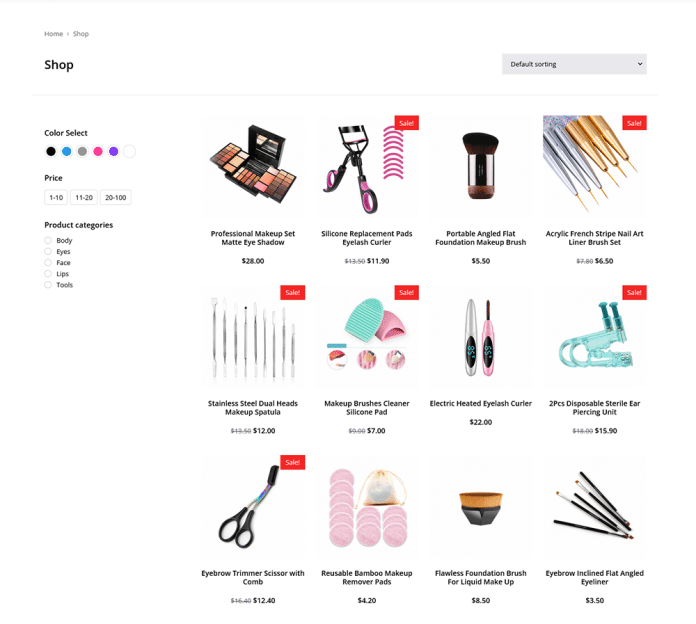Table of Contents
Introduction
Businesses exist mainly through online advertising in order to reach their potential audience so they can conduct business transactions. Digital marketing has established Google Ads as one of its fundamental practices which drives employers to seek professionals who excel in managing advertising campaigns. Achieving success in your digital marketing career requires mastering google ads interview questions processes. Knowledge of Google Ads questions coupled with Google Ads jobs insights and business and cost concepts in India will create a competitive edge during interviews.
The blog provides the crucial Google Ads evaluation questions(google ads interview questions) and complete explanations to help digital marketing candidates build successful professional careers.
1. An explanation of Google Ads services with a description of its procedural functions.
Explanation
Businesses can use Google Ads to build advertisements through an online platform from Google which displays them across Google search engine results pages and YouTube along with partner sites. Advertisers on this platform only pay by the click since Google Ads functions through the pay-per-click (PPC) system.
Advertisers use a competitive bidding system through Google Ads to acquire specific keywords related to their products or services. The selection of displayed ads to users who search for those keywords happens through a process that considers both the ad relevance and Quality Score and bid amount. Advertisers determine costs through two main settings: daily spending limits and bidding strategies.
Google Ads lets businesses enhance their traffic quality and brand visibility and boost conversion numbers through its ability to present ads directly to active research users who seek related products. This marketing resource works as a vital basis for companies that strive to build their presence throughout the online world.
Key Takeaway
Successful Google Ads mastery enables superior performance during job interviews as well as effective real-time campaign management.
2. What Are the Different Google Ads Campaign Types?
Explanation
The Google Ads platform includes various advertising strategies which serve diverse organizational purposes. The marketing goals define which campaign type to use while different advertisement forms function within separate placement positions (google ads interview questions). Reaching the right business strategy requires knowing the various Google Ads campaign types.
The search campaigns display text advertisements that show up on Google search result pages following relevant keyword queries from users. Through their function search campaigns businesses successfully collect traffic from users who demonstrate strong purchasing intent while looking for their products and services.
Display Campaigns provide millions of websites and apps and Google-owned properties with visual advertisements for marketing objectives. Display advertising works well to strengthen brand notoriety and revive users who previously visited a website.
Product listings containing images along with prices and store names present themselves in Google Shopping results through Shopping Campaigns. E-commerce companies that aim to boost their sales performance find the highest value in this campaign model.
Video campaigns delivered by YouTube reach viewers through YouTube videos and all Google partner network sites. Their video content helps companies spread brand messages to their target audience.
The App Campaigns function specifically for app installation promotion shows your advertisements within Google Search and Play Store as well as YouTube and Google-owned domains.
Why It’s Important
Business goal alignment with advertising strategies becomes possible through comprehensive knowledge of different marketing campaigns. Your knowledge of campaign types becomes crucial for interview success because it reveals your capability to develop specific advertising strategies for various business sectors.
3. What Is the Google Ads Auction System?
Explanation
Ads displayed on the search engine results page (SERP) and their placement in order are determined by the auction process of Google Ads. When users enter search queries on Google the platform activates an ad auction that enables advertisers to compete through three primary factors: maximum bid rate and Quality Score and calculated Ad Rank.
An advertiser indicates their supreme price to pay when a user clicks an ad through Maximum Bid.
Google evaluates the Quality Score of an ad using a 10-point scale from 1 to 10 through keyword relevance assessment and anticipated click-through rate measurements and evaluation of the landing page experience.
The calculation of Ad Rank score depends on both bidding amount and Quality Score. The higher the Ad Rank, the better the placement of the ad.
Pro Tip
Higher Quality Score levels both decrease Google Ads cost India and enhance ad positioning. Google chooses relevant quality-oriented advertisements above those which only offer high bids.
4. What Are Google Ads Quality Score and Its Components?
Explanation
Google makes Quality Score a vital tool to evaluate the suitability and performance quality of advertising content. The Quality Score establishes both the ad position and the cost for advertisements. Google measures Quality Score through three essential factors including:
Expected CTR calculations determine the probability that users will click on advertisements. A higher CTR leads to a better Quality Score.
The relevance of an advertising message is evaluated by the level to which it matches the user search purpose.
Users experience the relevance and speed of loading together with the overall quality of the landing page that connects with the advertised ad.
Interview Insight
Businesses along with digital marketers focus on Quality Score optimization since this practice enhances ad position and lowers advertising expenses.
5. What Is the Difference Between CPC, CPM, and CPA?
Explanation
A business can select bidding mechanisms from Google Ads ( google ads interview questions ) according to its organizational priorities.
ash board owners pay CPC so they only need to pay when users click on their advertisements. Using this method leads to direct website visitors from advertisements.
CPM (Cost Per Thousand Impressions) – Advertisers pay for every 1,000 impressions, regardless of clicks. For brand awareness movements CPM functions as a valuable bidding solution.
The CPA system activates payment only when users accomplish specific goals including making a purchase or creating an account. The conversion maximization goal makes this model framework an optimal selection for marketers.
Why It’s Important
Controller of google ads business budgets and enhancer of campaign performance depends heavily on the comprehension of these metrics.
6. What Are The Methods To Decrease Google Ads Costs In India Without Ad Performance Deterioration?
Explanation
Organizations with constrained advertising funds need fundamental Google Ads cost reduction methods that sustain performance quality. Strategies to achieve this include:
Higher Quality Score ratings lead to reduced CPC costs and better advertising positions.
Specific Search Terms Can Become Negative Keywords within an Ad Campaign Thus Reducing Wasted Media Spending.
Boilerplate and enhanced ad copywriting enables better ad response rates which in turn cuts down advertising costs.
A strategic addition of extended information through Ad Extensions enables users to see more ad content while increasing their interaction with advertising materials.
7. The different available methods to set your bids when using Google Ads.
Explanation
The bidding strategies in Google Ads let advertisers reach their goals through various bidding mechanisms.
Manual CPC – Advertisers set their own maximum CPC bids.
People who use Enhanced CPC allow Google to modify their bids according to conversion probabilities.
As part of this feature Google takes over bid control to achieve maximum clicks.
The platform applies AI algorithms to enhance conversion activities.
Proper bidding adjustments occur thanks to the target ROAS function.
8. What Procedures Exist For Tracking Google Ads Campaign Results?
Explanation
Through its tracking features Google Ads allows businesses to monitor campaign achievements through specific tools such as:
Conversion Tracking – Monitors actions like purchases and sign-ups.
Google Analytics Integration – Tracks user behavior on the website.
UTM Parameters are tracking tools that provide detailed data about visitors from various sources.
Conclusion
Knowledge of Google Ads interview questions provides you with an advantage in digital marketing job competitions. Your Google Ads prospects require fundamental knowledge about campaign strategies combined with complete understanding of bid techniques and cost optimization. When you invest time in proper preparation alongside maintaining an active understanding of present industry patterns you will succeed in Google Ads roles thus helping drive effective advertising initiatives. Best of luck with your Google Ads interview!
Frequently Asked Questions
What are the most common Google Ads interview questions, and how can I best prepare for them?
The topics that can be frequently expected when being interviewed for Google Ads mostly include campaign optimization, keywords, bidding, as well as Google Ads metrics. Review information about Google Ads from basic to the complex level, practice on the same, and prepare to give examples based on previous campaigns. Ensure you have concentrated on how you are going to show your ability to reason and your comprehension of digital marketing concepts.
Can you provide some Google Ads interview questions and answers to help me understand the expected responses?
Some general sample questions may extend to: “How would you enhance a campaign with low Quality Score admob”? Specifically, always stick to better ad relevance, enhancing the landing page, and the estimated CTR rating. Describe what is the difference between the broad match and exact match? Broad match means that Internet Explorer treats your keywords as a base on which it also produces related keywords, while exact means it matches your keywords precisely. It is important to spend time practicing these generic questions and how one arrives at the answers.
What specific Google Shopping Ads interview questions should I anticipate, and how do they differ from general Google Ads questions?
There will most likely be questions regarding general Merchant Center setup, product feed optimization, Shopping campaign organization, as well as bidding targeting Ad Groups in Shopping Ads. These set it apart from the typical Google Ads questions and concerns which relate to the announcement as product data feeds, merchants’ policies, and visual characteristics of Shopping Ads. Prepare to talk in terms of targeting, promotion and evaluation of a product within the scope of shopping scenario.
What are some advanced interview questions on Google Ad Operations that I should be prepared for if applying for a senior role?
These may include programmatic, programmatic advertising, most sophisticated bidding models, multichannel campaign management, and other sophisticated issues that may be rank tasks. It is possible to be considered about some questions that refers to the API experience, scripting, and automation. Be prepared to talk about complex phenomena of your work such as the scale of your campaign, analysis of mass-amount of data, and the application of changes across different channels
What are the key interview questions on Google Ads that focus on data analysis and performance reporting?
They may include programmatic, programmatic advertising, most sophisticated bidding models, multichannel campaign management and others which may be ranked as tasks. It is possible to be concerned about some questions which are related to the API experience, scripting and Automation. Be ready to explain about some of the phenomena of your work like the size of your campaign, handling of large quantity of data and implementing the changes across board.



